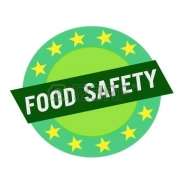Responsibilities of Health and Social Care Workplace
| ✅ Paper Type: Free Essay | ✅ Subject: Health And Social Care |
| ✅ Wordcount: 2026 words | ✅ Published: 05 Sep 2017 |
1.2. Assess the responsibilities in a specific health and social care workplace for the management of health and safety in relation to organisational structure.
The business dictionary defines organisational structure as:
The typically hierarchical arrangement of lines of authority, communications, rights and duties of an organization. Organizational structure determines how the roles, power and responsibilities are assigned, controlled, and coordinated, and how information flows between the different levels of management.
Chief executive/ directors/ managers /HR and supporting staffs

Health and Safety Commission:
The stakeholders and Directors will ensure that a Health and Safety Committee is established and supported. This committee will see to the development, implementation, arrangements of health and safety policies and procedures. They also ensure that the policies and procedures are undertaking and executed. This will be reasonable practicable without risk to the health and safety of those who engaged in, or affected by our operations. They ensure that the provision of this policy is kept under review with regard to changes in legislation, best practice.
They propose new Health and Safety Regulations to the Secretary of State.
Examples, Noise at work regulations 1989 the commissioner will ensure that a Health and Safety Committee is established and supported. They will come out with development and implementations, They will ensure that the policies and procedures are upheld and executed as reasonably practicable without risk to the health and safety of those carrying out operations.
We maintain high standard in the management of health and safety, with the prevention of accidents, the provision of a safe working environment and the safeguarding of employees’ health wellbeing, it is everyone’s responsibility to ensure that maintain and achieve our set objectives.
As an employer of labour, my organisation recognises the health, safety and the welfare of staff at work , guests , clients any contractors, so far as is realistically practicable.
We are committed to the continuous improvement of our Health and Safety system, policies, procedures and methods of working that are designed to ensure the safety, health and welfare of all employees, visitors and anyone else who is likely to be affected by our work activities.
COSHH Regulation 2002 stated that employers are responsible for providing, replacing and paying for Personal Protective Equipment (PPE) which should be used by all staff as part of health and safety at work.
Health and Safety Committee
All representatives sitting on the Health and Safety Committee are to actively promote all aspects of health and safety within the organisation and the areas of responsibility. In particular they are to encourage discussion and understanding of these policies and procedures.
Our line Managers
Our line Managers are expected to device a method of implementing the over all objectives by demonstrating a positive, proactive approach to health and safety, by certifying that this policy, together with its related procedures are clearly communicated to employees and then implemented, monitored and reviewed.
Managers
The managers will establish open communication with everyone they are responsible for and will promote any changes in the Health and Safety Policy. It is the responsibility of the Health and Safety Manager to ensure suitable arrangements are in place and implemented.
Employees and others
Employees and others involved in the organisation’s activities, have a responsibility to take care of their own health and safety at work and that of any other people who may be affected by their acts. All training provided must be attended by the staff. They are required to conform with this policy and the related corporate procedures that are provided to them. They are to carry out their work without endangering themselves or others. Proactively contribute in the achievement of the organisation objectives of achieving a positive health and safety culture and to co-operate with line managers and colleagues in creating and maintaining a safe and healthy working environment. The staff must bring it to the consideration of line managers’ attention if there are any health and safety worries regarding unsafe practices, equipment or conditions we are encouraged to use the consultation channels provided, when necessary. We are to assist management in identifying any issues of health and safety including getting trained.
All significant health and safety information will be circulated appropriately, making use of notice boards, poster, and newsletters or by direct mail. Where activities could affect the health and safety of members of the public, suitable steps will be taken to ensure they are up-to-date of the risks and how they will be measured; wherever possible, it is the wish of the organisation to establish effective consultation with the workforce to safeguard planned systems of work are effective in reducing employee exposure to risk.
In conclusion, we all are working together as professionals fully committed to the health and safety principles which enable the organisation to promote high standard of health and safety policy in the organisation. Everyone in the organisation is responsible for reporting and recording all incidents/accidents that happen within the workplace. It is the responsibilities of the client if they are to communicate to report to staff or management and it is the responsibility of the staff to report the incident /accidents to his/her line manager. It is responsibility of the manager to record the incidents/accident s and to report all serious incidents /accidents to the authorities according RIDDOR Regulations 2013
1.3 Analyse health and safety priorities appropriate for a specific health and social care workplace.
The Creation of Health and Safety at Work Regulations1999 require every employer to provide employees with information on the possible risks to their health and safety; preventive and protective methods for those risks; backup procedures to identify individuals who have a role within the organisation’s health and safety controlling system. This contains giving employee’s information on any process or task that might involve specific risk. This information must be broad and it must make sense to individuals concerned. Codes of Practice and other guidance notes should be made accessible, as well as the organisation’s own clarification in the form of policies and procedures. This means that data should be constantly reviewed and revised according to modern working practices.
The duties of my employer, what they must do regarding my health and safety.
Most duties are subject to “so far as is reasonably practicable” i.e. the protection must be worth the cost. To protect the health, safety and welfare of staff, to provide and maintain safe equipment and safe systems of work, safe use, handling, storage and transport of articles and substances.
Safe workplace with a safe entrance and exit.
Provide information, instruction, training and supervision
Provide a written safety policy (if there are 5 or more staff)
Carry out risk assessments (in writing if 5 or more staff)
Provide a health and safety law poster entitled “Health and Safety law: What you should know” displayed in a prominent position and containing details of the enforcing authority.
“Employee” includes voluntary workers and persons on work experience.
Employees
The employees duties is to take care of themselves and others
To follow safety advice and instructions 
Not interfere with any safety device
To report accidents
To report hazards and risks.
Staff can ask about health and safety in the work place directly from their managers or the
Yours supervisor will usually be your first contact if you have a health and safety issue at work.
Your safety representative – may come from the union if the workplace is unionised
If you have a serious complaint that cannot be settled in the workplace, the Inspector from health and safety executive (HSE)
Food hygiene Enforcement:


Food safety is one of the areas that health and safety pays close attention to being that majority of clients are vulnerable due to age and health challenging. This means they can be more seriously affected by food poisoning or allergy than some other group of people. As a care provider, food preparation is part of normal day to day services seeing that they are taking care of by following the guidelines under the food and hygiene law for ensuring that food is prepared, stored and handled in compliance with the food hygiene regulations. This includes keeping a record of opened food jars and emptying food from tins with the correct labelling actions are carried out to keep food safe for the maximum time located . According to the Food Standards Agency, the group charged with protecting the public in the United Kingdom with regard to food, avoiding cross-contamination between raw and ready-to-eat food is one of the most important aspects of food hygiene. Separate knives and cutting boards must be used for the different foods. Raw food must be stored below other food in the refrigerator to prevent drips that could contain bacteria. Food must be chilled to the proper temperature at all times and must be cooked to a temperature that kills bacteria. Disinfecting food preparation areas and cleaning used equipment also are important food hygiene practices.
What the Law Says
Keeping food safe is a legal requirement and failure to do so can lead to prosecution. It is essential that food and drink provided in the community and hospital health care environment is managed and handled in a manner that it does not pose any risk to children, families, visitors or staff. All staff involved in working with food must ensure good food hygiene practices at all times. Under the Food Safety Act (GB 1990), water and ice are classed as food and therefore must be handled with the same good food hygiene practices as food. Failure to do so could result in a serious outbreak of food poisoning and potential loss of life.
Managers must put in place ‘food safety management procedures’ based on the principles of HACCP (hazard analysis and critical control point). HACCP is a way of managing food safety. It is based on putting in place procedures to control hazards. In practice, this means that you must follow the procedures that have been put in place to manage food safety ‘hazards’ in your Trust.
The Health and Safety at Work Act HASAWA 1974, came the Manual Handling Operations regulations 1992 was reinforced in January 1993. Manual handling is a major source of injury and the HSE has provided a lot of guidance for employers on how to minimise risk involved in manual handling. Where it is not reasonably practicable to avoid the need for care workers to undertake any manual handling operations at work a risk assessment is done (Stretch & Whitehouse, 2007) to plan and asses the weight of the service user we need to transfer while at the same time encouraging clients to move independently. In SMART care, we use the hoist but we also fully engage the client to do certain things he can do by himself. Example moving forward or backward etc.
However, people can fall during hoisting for a variety of reasons such as using the wrong size of sling. This can result in discomfort if the sling is too small and a risk of the person slipping through the sling if it is too large. Selection of the wrong type of hoist or sling for the individual or for the specific task can result in inadequate support and increased risk of falling from the sling. For example, access/toileting slings give a great degree of access but very little support and their use should therefore be restricted to toileting purposes, where appropriate. For this and many reasons, the care workers in SMART care have taken short cuts and have ended up injuring their backs. On other occasion they have left a vulnerable person unattended in a hoist, or in a position where they might be at risk of falling.
References
www.businessdictionary.com/definition/communication
www.food.gov.uk/sites/default/files/multimedia/pdfs/publication
www.hse.gov.uk/pubns/books/lawpocketcard.htm
http://www.hse.gov.uk/riddor
www.safenetwork.org.uk/getting_started/pages
Government “Working together to Safeguard Children March 2010”
www.businessdictionary.com/definition/communication
www.food.gov.uk/sites/default/files/multimedia/pdfs/publication
www.hse.gov.uk/pubns/books/lawpocketcard.htm
http://www.hse.gov.uk/riddor
www.ofsted.gov.uk
www.safenetwork.org.uk/getting_started/pages
Cite This Work
To export a reference to this article please select a referencing stye below:
Related Services
View allDMCA / Removal Request
If you are the original writer of this essay and no longer wish to have your work published on UKEssays.com then please click the following link to email our support team:
Request essay removal


